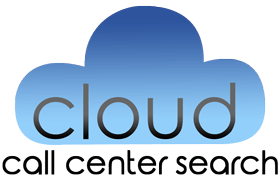Remote Call Center Technology Spotlight: Security & Compliance

Treat yourself to a well-deserved pat on the back.
If you’re like most call center leaders, you’ve been sprinting for the past few weeks to get your call center agents organized and working again across 100% remote teams.
It wasn’t easy — but it was necessary.
The next challenge is ensuring that your remote workforce is handling security and compliance protocols that meet your industry demands.
To make the at-home security model work, you’ll need capable solutions to handle your desktop-as-a-service (DaaS) and PCI compliance to help control environments for your remote agents.
Why DaaS for Remote Agents?
By virtualizing your call center environments with DaaS solutions, leaders can quickly deploy and scale the necessary environments to empower their agents. But, perhaps most importantly, a DaaS vendor helps organizations centralize security protocols within their cloud environment.
Because all data is secure in and accessible in the cloud, data breaches can be mitigated as there is no need to access or download data outside the broad perimeter of a DaaS platform.
How do I know if my virtual desktops are secure? We’ll tell you.
Why PCI for Remote Agents?
Any organization that collects credit card data is mandated to work within a PCI-compliant framework. This refers to the technical and operational standards businesses must exercise to keep cardholder data secure and properly encrypted across transactions.
To adhere to PCI Data Security Standards, or PCI DSS, call center leaders should look for cloud-capable vendors that can:
- Maintain a secure cloud network for card data.
- Showcase strong access control processes.
- Detail their information security policies clearly.
The problem is though that with the migration to at-home, we no longer have the physical location controls of the environment. Running a brick and mortar center allows you to control the access to paper and pen, cell phones or other devices that can be used to potentially record customer PII. With the proper PCI compliant omnichannel payment solutions you can completely remove the agent from scope.
With the proper system in place, the caller can supply their information to an automated system without the agent ever hearing or seeing the data, completely removing the agent from scope. The system then processes the payment and gives the agent confirmation it has processed successfully. Some systems have taken it a step further and created advanced tokenizing methods for individuals to allow for an even easier payment process that has a significant increase in conversions to payments and also a much better experience for the consumer.
Are my remote agents PCI compliant? Find out now.
Security Considerations for Remote Agents
Secure WiFi
How will your remote agents be accessing the internet? For some, they’ll have dedicated network access in their homes. But many others may be accessing WiFi from apartment complexes, condominiums, or public locations once lockdown restrictions loosen.
If you’re concerned about the level of security your remote workers can access in their home offices, consider investing in a cloud solution that connects virtual desktops to PCI-compliant infrastructures to manage credit card and cardholder data.
How can I deploy secure WiFi for my agents?
IT Overload
The sudden shift from on-premise call center teams to fully remote workforces has created a huge burden for IT teams, as they sprint to deploy and update environments with security patches in real time.
Lacking a central DaaS platform means IT must individually secure work environments for each remote agent. The more workload foisted onto your IT professionals, the greater likelihood a security measure will slip through the cracks.
IT departments have to be overly cautious when agents, accessing sensitive information during day-to-day activities, are suddenly thrust into remote work. Plenty of cloud solutions have been designed to give IT greater visibility and accountability into their remote contributors, which saves time and money in the short term while also protecting against data breaches with long-term repercussions.
How can I ensure IT is equipped to handle distributed agents?
Managing Vendors
Virtually every organization relies on external vendors to deliver end-to-end products and services — and they are held to the same information security standards as your day-to-day employees.
But how are you preparing your distributed agents to leverage the same on-premise vendors that they once accessed from your home office? Connecting remote call center agents across virtual machines, with the secure tools and processes they’ve become familiar with, requires precise vendor specifications to work. Make sure you’re choosing vendors that can support your processes any place, anywhere, 24/7.
How can I choose the right vendor for my remote agents?
Now is the Time to Improve Your At-Home Call Center Model
Your industry was one of many that was caught up in the rush to shift to an at-home agent model. Your typical security and compliance measures may have taken a backseat to your primary focus of continuing customer services.
But now, as you’re settling your team into new remote processes, it’s critical to refine and safeguard your call center to adhere to regulatory standards to keep your business compliant.
Cloud Call Center Search is working with many customers making this same transition — let us help answer your questions with a free, no-risk consultation to secure your call center today. We can help.




